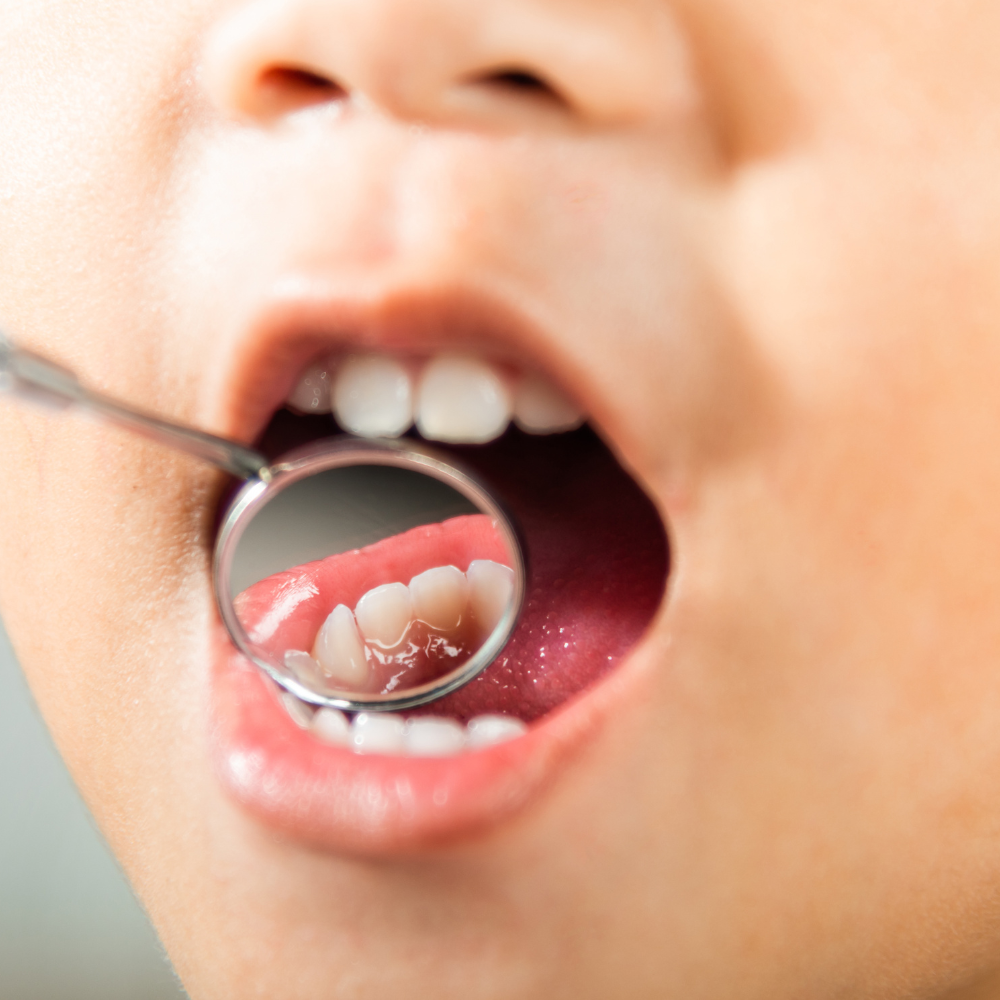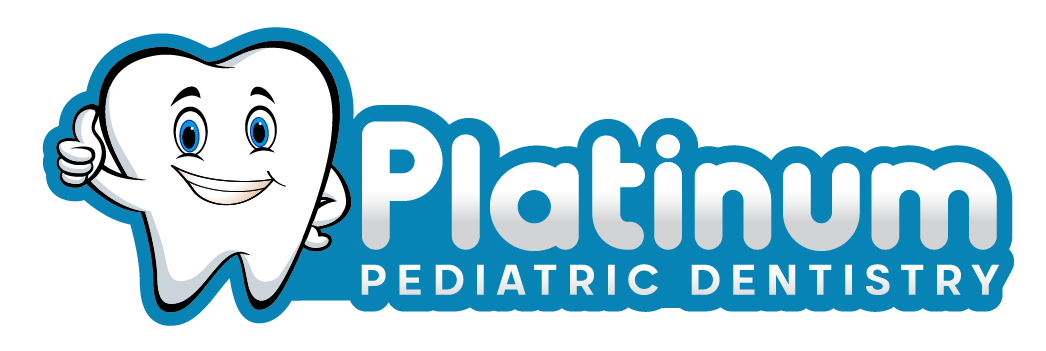 Many parents in Long Island wonder whether it’s necessary to treat cavities in baby teeth, especially since they will eventually fall out. The short answer is yes—treating cavities in primary teeth is essential for your child’s oral health. Left untreated, cavities can cause pain, infection, and even long-term dental problems affecting permanent teeth.
Many parents in Long Island wonder whether it’s necessary to treat cavities in baby teeth, especially since they will eventually fall out. The short answer is yes—treating cavities in primary teeth is essential for your child’s oral health. Left untreated, cavities can cause pain, infection, and even long-term dental problems affecting permanent teeth.At Platinum Pediatric Dentistry, we specialize in early cavity detection and treatment to prevent complications. Here’s why treating cavities in baby teeth matters.
Understanding Cavities in Baby Teeth
Cavities, or dental caries, are areas of decay caused by bacteria that produce acid when they feed on sugars in the mouth. This acid erodes enamel, leading to holes in the teeth. Baby teeth have thinner enamel than permanent teeth, making them more susceptible to decay.
Common causes of cavities in children include:
- Frequent snacking on sugary foods
- Drinking juice, soda, or sweetened milk frequently
- Inadequate brushing or flossing
- Nighttime bottle-feeding
- Genetic factors and enamel defects
Why It’s Important to Treat Cavities in Baby Teeth
Many parents assume that because baby teeth eventually fall out, cavities don’t need treatment. However, untreated cavities can lead to serious oral health problems, including:
1. Pain and Discomfort
Tooth decay can cause sensitivity and pain, making it difficult for your child to eat and sleep. In severe cases, this can lead to abscesses and facial swelling.
2. Infections That Spread
A cavity left untreated can lead to an infection in the tooth’s pulp (the inner nerve and blood vessels). This can result in dental abscesses, which may require antibiotics, root canals, or even extractions. If the infection spreads, it can affect other parts of the body, including the jawbone and bloodstream.
3. Speech and Developmental Issues
Baby teeth help children develop proper speech patterns. Losing them too early due to untreated decay can cause speech delays or difficulty pronouncing certain words.
4. Misalignment of Permanent Teeth
Baby teeth serve as space holders for adult teeth. If a baby tooth is lost too early due to decay, neighboring teeth may shift, leading to crowding or misalignment when permanent teeth come in. This can result in the need for orthodontic treatment later.
5. Poor Eating and Nutrition
Children with painful cavities may avoid chewing on one side of their mouth, leading to poor digestion and nutritional deficiencies. Healthy teeth are essential for proper chewing and overall development.
6. Impact on Self-Confidence
Tooth decay can cause visible black or brown spots on teeth, leading to embarrassment and self-esteem issues. Treating cavities ensures your child maintains a healthy, confident smile.
7. Preventing Future Dental Problems
Children with untreated cavities are more likely to develop tooth decay in their permanent teeth. Early dental care establishes good oral hygiene habits that last a lifetime.
Treatment Options for Cavities in Baby Teeth
If your child has a cavity, your pediatric dentist will recommend the best treatment based on the extent of decay:
1. Fluoride Treatment
If the cavity is in its earliest stages, fluoride treatments can help remineralize the enamel and prevent further decay.
2. Dental Fillings
For moderate cavities, a tooth-colored composite filling can restore the tooth’s structure and function.
3. Stainless Steel Crowns
When decay is extensive, a stainless steel crown may be placed over the tooth to protect it until it naturally falls out. This is a common and effective solution for large cavities in baby molars.
4. Pulpotomy (Baby Root Canal)
If the cavity has reached the inner pulp of the tooth, a pulpotomy (baby root canal) may be needed to remove the infected tissue and prevent further complications.
5. Tooth Extraction (Only When Necessary)
If a tooth is beyond repair, extraction may be required. In such cases, a space maintainer is often placed to ensure proper spacing for permanent teeth.
How to Prevent Cavities in Baby Teeth
Preventing cavities is easier than treating them. Here’s how you can protect your child’s teeth:
1. Start Brushing Early
Begin brushing as soon as the first tooth appears using a smear of fluoride toothpaste for children under three and a pea-sized amount for children over three.
2. Floss Daily
Once teeth touch, introduce flossing to remove food particles and plaque between teeth.
3. Limit Sugary Foods and Drinks
Avoid sugary snacks, juice, and sticky foods. Encourage drinking water and healthy snacks like fruits and vegetables.
4. Schedule Regular Dental Checkups
Visit Platinum Pediatric Dentistry every six months for exams and professional cleanings to catch cavities early.
5. Consider Dental Sealants
Dental sealants provide a protective coating over molars to prevent cavities in hard-to-reach areas.
6. Encourage Healthy Oral Hygiene Habits
Make brushing and flossing fun by using a timer, reward chart, or flavored toothpaste.
Q&A Summary
Q: Why should I treat a cavity on my child’s baby tooth if it will fall out?
A: Treating cavities prevents pain, infection, misalignment of permanent teeth, and long-term dental problems.
Q: What happens if I don’t treat my child’s cavity?
A: Untreated cavities can lead to pain, infections, premature tooth loss, and orthodontic issues.
Q: What are the best ways to prevent cavities in baby teeth?
A: Regular brushing, flossing, avoiding sugary foods, routine dental checkups, and dental sealants help prevent cavities.
Q: When should I take my child to the dentist?
A: The first dental visit should be by age one or when the first tooth appears.
Q: What treatments are available for cavities in baby teeth?
A: Fluoride treatment, fillings, stainless steel crowns, pulpotomy, or extractions, depending on severity.
Q: Where can I learn more about pediatric dental care?
A: Visit Platinum Pediatric Dentistry or check out resources from the American Academy of Pediatric Dentistry (AAPD) and the American Dental Association (ADA).
Conclusion
While baby teeth are temporary, their health is essential for your child’s overall well-being and future smile. Treating cavities promptly helps prevent pain, infections, and misalignment, ensuring healthy permanent teeth. At Platinum Pediatric Dentistry, we provide expert pediatric dental care in Long Island, helping parents make informed decisions about their child’s oral health.
Schedule your child’s next dental checkup today!
